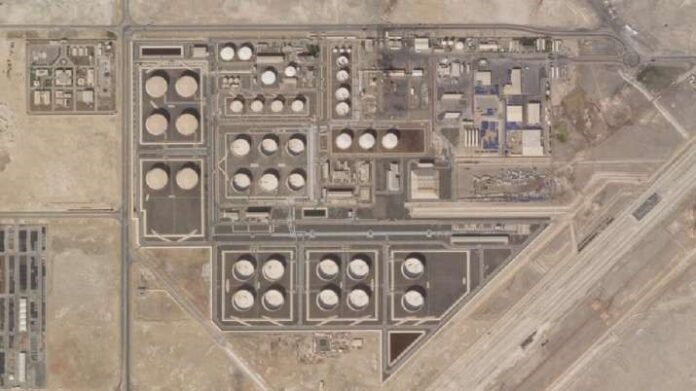| Translate This News In |
|---|
According to authorities, the UAE intercepted a ballistic missile fired by Yemen’s Houthi rebels early Monday as the Israeli president was visiting the nation, the third such attack in recent weeks.
The strike coincides with President Isaac Herzog’s visit to the region, which has seen a succession of attacks as Iran’s nuclear deal with international powers crumbled and Yemen’s years-long war continued.
The rebels are conducting their most long-range attacks yet, as mediators in Vienna try to rescue the agreement and Emirati-backed forces march on the Houthis. These attacks pose a significant challenge for the Emirates, which has long promoted itself as a safe haven in an otherwise violent environment.
“The attack did not result in any losses, as the remnants of the ballistic missile fell outside of populous areas,” the UAE’s state-run WAM news agency stated.
The location of the missile fragments was unknown at the time. The UAE’s civilian air traffic control body said there would be no immediate impact on air travel in the country, which is home to long-haul airlines Emirates and Etihad.
In the UAE, an autocratic federation of seven sheikhdoms on the Arabian Peninsula, the country’s chief prosecutor has already threatened that anyone who films or posts photographs of such an incident will face criminal prosecution. This makes it considerably more difficult for journalists to report on such situations.
In the absence of those films, the Emirati Defense Ministry published black-and-white footage from Yemen’s al-Jawf area, which it said showed the destruction of a ballistic missile launcher 30 minutes after the attack. A similar hit on al-Jawf was conducted minutes later in another attack last week, leading observers to speculate that the Emiratis may be receiving intelligence support from the West for their strikes.
Al-Jawf is located about 1,350 kilometres (840 miles) west of Abu Dhabi.
Yehia Sarei, a spokesman for the Houthi military, said on Twitter that the rebels would make an announcement in the coming hours regarding an attack that would reach “the depths of the UAE.” He didn’t go into detail, and the Houthis’ Al-Masirah satellite news programme did not immediately broadcast anything.
Herzog is on a state visit to Israel, where he serves as the ceremonial president of the country’s parliamentary democracy. On Sunday, the ceremonial leader met with Sheikh Mohammed bin Zayed Al Nahyan, Abu Dhabi’s powerful crown prince.
According to Herzog’s office, he informed Sheikh Mohammed, “I would like to underscore that we fully support your security requirements and that we reject any attack on your sovereignty in all forms and languages.”
When questioned about the missile intercept, Herzog’s office told The Associated Press early Monday that the trip would “go as planned.” It didn’t provide any other information. Herzog was set to visit Dubai’s Expo 2020 world’s exhibition on Monday, which the Houthis had vowed to attack previously.
In December, Israeli Prime Minister Naftali Bennett paid his first official visit to the Gulf Arab sheikhdom, where he met with Sheikh Mohammed and discussed a number of issues. The trips follow the UAE and Bahrain’s recognition of Israel and establishment of diplomatic relations with Israel in 2020. The normalisation agreement has been denounced by Palestinian leaders as a betrayal of their statehood movement.
Last week, both Emirati and US military fired interceptor missiles near Al-Dhafra Air Base in Abu Dhabi, which houses 2,000 American personnel, to stop a Houthi attack. Requests for comment from the US military went unanswered right away.
A Houthi drone and missile attack the week before had killed three persons and injured six others at an Abu Dhabi National Oil Co. gasoline store. Another strike was aimed at Abu Dhabi International Airport, though no damage was visible in satellite photographs assessed by the Associated Press. President Moon Jae-in of South Korea was in the UAE at the time of the assault.
Despite the fact that the UAE has mainly withdrew its own forces from Yemen, it remains active in the fight. It backs militias fighting the Houthis, who took control of Sanaa, Yemen’s capital, in September 2014.
The missile attacks on the UAE come as the Houthis are under pressure and losing ground. Yemeni government forces have driven back the insurgents in crucial areas, with the UAE’s help and support. The government forces, aided by the Emirati-backed Giants Brigades, reclaimed the province of Shabwa earlier this month, dealing a blow to Houthi aspirations to take control of Yemen’s entire northern half.
Despite the fact that Emirati servicemen have died in the battle, the war has had little impact on daily life in the wider UAE, which has a large foreign workforce, until last month.


















